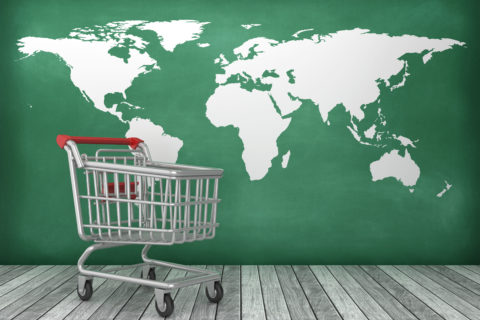Since 2017, the online use of the term ‘greenwashing’ – a superficial or insincere display of concern for the environment that is shown by an organization – has risen by 600%. This rise isn’t just visible in countries at the forefront of the fight against climate change. Rather, it appears that people worldwide are waking up to the changes needed to protect the planet, and becoming increasingly critical of the role brands play in this.
We employed social listening techniques (a comprehensive web scrape for the term ‘greenwashing’ followed by location-filtered search and analysis) to understand what greenwashing really means for consumers and highlight how companies can change to ensure they stay on the right side of the climate debate.
Trending now
Greenwash isn’t a new concept. The term was first used over 30 years ago in response to a hotel sign instructing a guest to ‘re-use towels to save the environment’. With little to back up the claim, he saw the initiative as more profit-saving than environment-saving.
Today, accusations of greenwash are skyrocketing, as society witnesses an epic shift towards sustainability, proving devastating for brands under fire. One UK study found that only 7% of people believed companies’ communications around sustainability, with 56% more loyal to brands that can show, at a glance, evidence of their action (Reuters, 2011).
Shifting focus
Our analysis found that over the last three years, PepsiCo, Google, Unilever and H&M have received the most greenwash mentions online – highlighting that all sectors from tech to fast-fashion, are under increasing scrutiny for their environmental footprint.

Historically, PepsiCo has been most under fire online. FMCGs are an obvious target for eco-conscious consumers. Research into global attitudes to sustainability shows packaging and sustainable sourcing are the most prominent issues in consumers’ minds.
However, as understanding of the environment continues to grow, consumers are turning a critical eye to less obvious perpetrators too. In recent months, Google has come under scrutiny for its physical, as well as political, impact on the fight against climate change – being criticised for its business relationships with climate deniers, as well as its water consumption.


Switching on
With the UK leading the way in veganism (Scottish Field, 2018) and plastic consumption (The Grocer, 2019), it’s not surprising that our research found British and Irish consumers to be talking about greenwash online more than other nations. A number of key areas have rallied consumers to call out the behaviour.
1. #stopfakegreen relates to financial institutions that term investments ‘green’ even when they involve oil, pesticides or even nuclear weapons.
2. In November 2019, @ClientEarth galvanised the public with a campaign to ban fossil fuel companies from advertising in the UK. Critical of BP’s latest advert, the charity claimed the oil company was misleading in its representation of being pro-sustainability and should reflect #thewholetruth.

3. Whilst relatively small-scale, #beewashing is indicative of a growing trend. Consumers are becoming more specific with their accusations, often accusing companies of cashing-in on areas most under threat from the climate crisis.
Catching up
As sustainability becomes a global movement, advancements across all continents are expected, and quickly. There is growing use of the term ‘greenwash’ across many Asian countries, particularly in Singapore, Malaysia and India.
In India, criticism is focused around brands making high profile pacts and resolutions which many believe have little substantiation behind them. With fast-fashion a key concern for the country, many were critical of the G7 meeting in Biarritz in 2019, in which 31 brands signed up to a sustainable fashion pact.
Even China is catching up. In one year, it has moved from introducing the concept of recycling to banning single-use plastics in their entirety. As consumers in these markets begin to take responsibility for their environmental footprint, they will look to brands to do the same.
Taking action
Sustainability is an increasingly complex landscape for brands to navigate. As understanding grows, more aspects of business are being scrutinised. Increasingly, consumers are calling out initiatives that appear sustainable but cause harm to the environment further up the chain. Action must be carefully considered – making changes in one area that negatively impact another will invite greenwash accusations.
Furthermore, with EU governments backing a ground-breaking law to stop greenwash in finance (Financial Times, 2019), attention may soon turn to other industries employing the same practices. Claims of sustainability may become stricter for all those wishing to align themselves with eco-friendly practices and as such, initiatives must stack up on a local, national and global level.
It’s now more important than ever that eco-friendly actions taken by brands are thoroughly researched to ensure they live up to claims. In the meantime, open and transparent communications like those of Amazon, Danone, Nestle, Unilever and L’Oreal, help to show consumers that steps are being taken in the right direction (Globalwebindex, 2019).
Consumers worldwide are talking about the environment, and brands should be listening.


